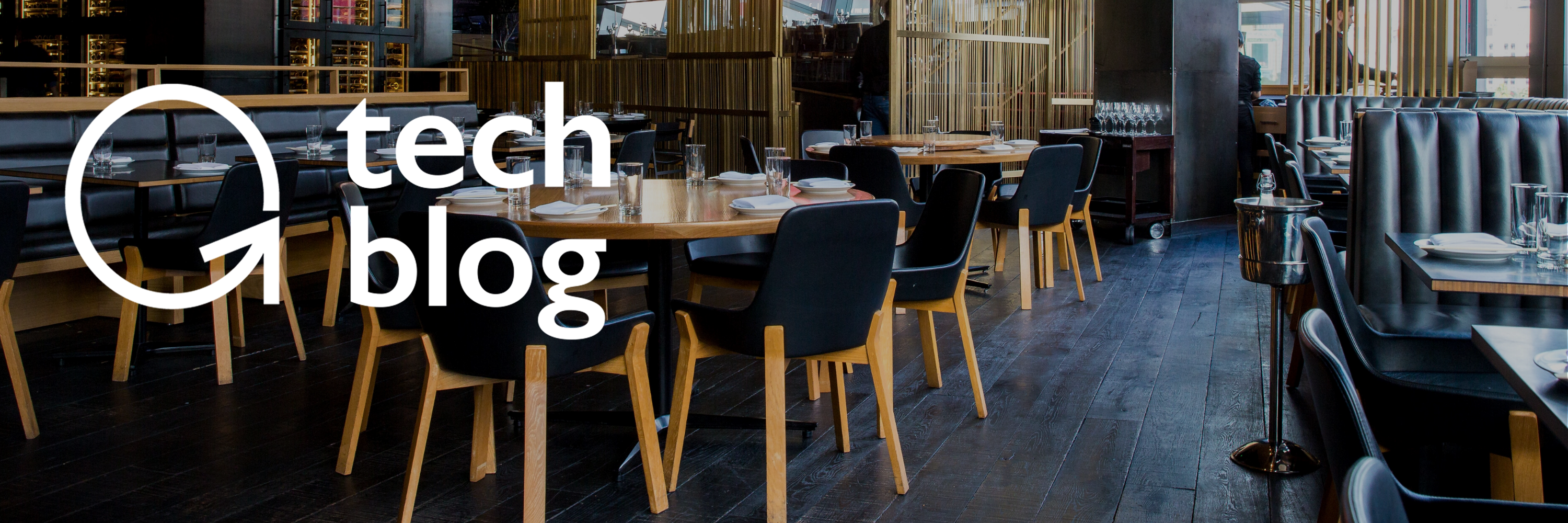
Exponential tech has been disrupting traditional industries at an ever-increasing pace.
… And the pandemic has basically put these changes into hyperspeed. Never have we had the opportunity to rewrite entire sectors, redefine the problems they address, and reinvent their solutions.
This blog dives into COVID-19 industry impacts, paradigm shifts, and monumental business opportunities across 4 major industries:
- Brick-and-Mortar Retail
- Restaurants & Dining
- Commercial Real Estate & Offices
- Education
Next week, we’ll dive into two more industries prime for disruption, namely healthcare and events.
As my friend Phillip Stutts summarized, “consumers are nervous, scared and need certainty.”
What does this mean for you as an entrepreneur? The “opportunity thesis” is to offer consumers:
- Safety (safety to work and eat at home, and products that don't compromise health);
- Trust (that you care about your customers & are not in it for a quick buck);
- Control and consistency (‘you’ve got my back,’ and ‘I know what I’m getting’).
Let’s dive in…
(Note: If you like this blog, share it! | Facebook | Twitter | LinkedIn | Or send your friends and family to this link to subscribe!)
Brick-and-Mortar Retail
Impact: Q1 & Q2 2020 losses are spelling “game over” for more brick-and-mortar retail.
J. Crew just filed for Chapter 11 bankruptcy this past Monday, and other major retailers, from J.C. Penney and Neiman Marcus to Lord & Taylor, may be quick to follow, all weighing the decision to file for bankruptcy. (Or take Nordstrom, which has now announced plans to permanently close 16 full-line stores.)
But the real tragedy is the millions of small “main street” retailers that will fold in the months ahead as government stimulus monies run out, consumers tighten their belts, and subconscious social distancing keeps many homebound.
In 2018, roughly 1.8 billion people around the globe purchased goods online (Statista, 2018). In the same year, global e-retail sales amounted to $2.8 trillion. And by 2021, global e-retail sales are expected to grow to $4.8 trillion.
Anyone who wasn’t purchasing online has basically been forced to learn over the past 60 days as a result of today's pandemic conditions. And as countless eCommerce newcomers find online buying increasingly convenient and easy, this transition is only likely to accelerate.
Entrepreneurial Opportunities: Here are some ideas to consider.
(1) Provide a turnkey service to “main-street retailers:” Most mom and pop stores don’t have the technical chops to go online, master SEO, and adopt automated fulfillment options. One opportunity for tech-savvy entrepreneurs is to help put a main-street retailer’s products online. Most retailers haven’t realized that they can list their products on Amazon or use Shopify to drive eCommerce for themselves.
(2) Personal Shopper Services: Rather than simply selling stuff in a store, consider becoming a retailer that adds a high-touch customization service to your offering. Serve your local clients in a way that online cannot. Consult them on their needs, design and fulfill on jewelry, clothing or furniture. People trust people far more easily than they trust corporate brands.
(3) Add an Exponential Tech to your offering: Instead of perusing clothing racks, we’re in the initial stages of a retail era dominated by Virtual Reality, Augmented Reality and Spatial Web technologies. Whether it’s virtual try-on capacity, AR-overlaid information on the physical assets in your field of view, or your own Artificial Intelligence personal shopper, retail is at a historic turning point. For entrepreneurs, now is the time to redefine it.
Restaurant Industry & Future Dining
Impact: In the same way that the 2008 economic crisis devastated housing, the pandemic of 2020 is laying waste to the restaurant industry.
As Phillip Stutts mentioned on a recent podcast with me, “even when America fully opens the economy, 30-50% of the restaurant industry will disappear. Think about it — if you remove 65% of a restaurant and bar’s seating to be socially distant, there is no money to be made.” And even if official “social distancing” measures are relaxed, ingrained habits die hard as residual caution lingers in the public’s mind.
On the good news side, according to an AMC Global survey, 38% of polled consumers plan to support local businesses far more in the future, indicating a dramatic emphasis on community support and local dining.
Entrepreneurial Opportunities: Here are some ideas to consider.
(1) Enter KaaS, or “Kitchen-as-a-Service:” For many restaurant owners, it’s time to ditch your dine-in square footage, and focus on maximizing your kitchen to prepare fine dining services and deliver these to your local clients. Send out push emails every morning with the “special of the day,” and grant users easy access with a one-touch purchase. Make it easy. Maybe delivered frozen meals that are easy to reheat.
(2) Offer White-Glove Service: Imagine restarting your restaurant with a Post-COVID mindset that accounts for the major consumer shifts discussed above, emphasizing Trust, Safety, and Consistency. Ironically, the post-COVID era may in fact be the best time to start a restaurant. As Stutts explains, “You can negotiate cheap commercial rent, the labor is available, and you can be flexible with seating capacity (you [won’t] be married to the old model).”
Imagine offering a service where you not only deliver meals to your client’s home, but provide in-home servers that set the table, serve the meal (with N95 masks and gloves), pour the wine and take away the dirty plates. Turn-key and high-touch!
(3) Robotics & Artificial Intelligence: And for the tech geeks out there, the use of AI “food recommendation” engines and autonomous robots that can easily deliver within a few miles of a restaurant, should both be materializing shortly. One great example is the work done by Starship Robots, accelerating your access to a KaaS provider near you.
Commercial Real Estate & Offices
Impact: The commercial real estate market is about to take a severe hit. And the real estate domino effect can topple adjacent financial institutions as well.
As thousands of companies race to digitize, offices are rapidly migrating to digital platforms, dematerializing entire divisions and corporate campuses.
As my friend and top-performing “Executive Team Coach” Keith Ferrazzi prophetically remarked a few weeks ago, “We’re not 'going back to work'… We ARE at work, and for many, it’s more efficient and cost-effective than ever before.”
The convergence of 5G, WiFi-Gen6, video conferencing services (Zoom, Microsoft and Cisco) and new collaboration tools such as Slack, are making our workforce more productive at home, freeing up an hour (or more) of commute time.
Entrepreneurial Opportunities: Here are some ideas to consider.
(1) Go Digital/Virtual: If you are a traditional company with a few hundred employees who clock in every day and work from a desk, maybe it’s time to consider dematerializing your office.
Consider the economic trade-off... What does your office space cost you? What would happen if you canceled your lease, pumped 80% of those savings into profit, and took the remaining 20% to give to your employees as a stipend for better bandwidth in their home? Or a more comfortable desk chair?
Or, if you really want to peek into the future, consider following the lead of Glenn Sanford, CEO of eXp Realty, the first-ever cloud-based real estate brokerage firm. Glenn utilized a virtual platform called VirBELA (which he now owns) to build out the company’s mega-campus in Virtual Reality.
eXp Realty demonstrates the power of a dematerialized workspace, throwing out hefty overhead costs and fundamentally redefining what ‘real estate’ really means. Ten years later, eXp Realty has an army of 14,000 agents across all 50 U.S. states, 3 Canadian provinces, and 400 MLS market areas… all without a single physical office.
(2) Live-Work Space: If you’re an owner of commercial real estate, get ready for a rocky future. What do you do as renters cancel on you? What happens when the prices plummet?
One idea you might consider is turning offices into a combination of Live-Work space (if zoning allows), whereby you can offer startups the opportunity for their employees to live and work in joint environments. Imagine comfortable one- and two-bedroom apartments in combination with open offices, conference rooms, a central kitchen, dining area, and a shared social lounge?
Education
Impact: Perhaps the most dramatically notable effects of the pandemic have been on our schools. Practically overnight, millions of students became experts in “Zoom University.” And to date, roughly 1.38 billion students (primarily children) have been thrust into arguably the most dramatic industry pivot of this century.
Last year, edtech investments soared past $18.66 billion, driving a market shift towards digital learning and personalized classrooms. But as necessity makes way for innovation, the online education market is now projected to reach anywhere from $350-400 billion by 2025, and the numbers are only likely to accelerate.
For years, the education gap has continued to widen, as student debt (primarily in the U.S.) skyrockets, yet a degree’s ROI is questionable at best.
Now, facing a future in which the convergence of 5G, AI and AR/VR digitizes, dematerializes, demonetizes and democratizes education, we may soon be able to offer the same level of personalized education to every single student, independent of socio-economic status... in the same way that Google democratized access to information, and YouTube did so for entertainment.
Entrepreneurial Opportunities: Here are some ideas to consider.
(1) AI-enabled one-on-one teaching at home: AI and immersive technologies (primarily virtual & augmented reality) may soon augment your kids' education, offering personalized content based on student data.
Companies like Affectiva can use the forward-facing camera on an iPad in conjunction with its “emotional AI” technology (out of the MIT Media Lab) to know if your child is excited, confused or bored. This then allows educators and edtech platforms alike to adapt their education strategy on a personalized basis in real time, microsecond to microsecond.
(2) Gaming As Education: I currently have two boys in the 2nd grade. If I had access to compelling games that were endorsed by teachers and educational institutions, I would buy them and let my boys play for hours. Imagine a game that promised the following: “Mastery of this game by your children means they have completed all requirements of the 2nd grade mathematics curriculum.”
(3) Education as a Subscription: For higher education, the idea that you go to college or graduate school, and then are done with learning for the rest of your life, is no longer valid. As a result, our higher education institutions should consider offering education services as a lifelong subscription. When I’m accepted to MIT, it’s an offering that I expect to use throughout my life, taking courses online, in Virtual Reality, and occasionally on campus.
Want to track these industry trends in real-time?
Three years ago, I set on a journey to create a Machine Learning platform to scrape the world’s news, science journals and social feeds every day to understand how exponential technologies are impacting specific topics and industries.
The end result is FutureLoop, a free service with the following mission…
Every day, FutureLoop scans hundreds of thousands of articles and journals:
- Searching for news with ‘positive sentiment’ that is 'future-oriented'
- Identifying stories of ‘converging exponential technologies’ that impact industries
- Scanning for high-quality, referenced sources and validated stories
- Filtering out sensationalized and biased news
- Performing these searches on specific ‘user-selected topics’
- Summarizing articles to extract “What it is” and “Why it's important”
Check out FutureLoop. While the product is still in Beta, it’s powerful, high-quality and free.
Your mindset is your most important tool during this pandemic. Consuming the right information is critical to maintaining that mindset. FutureLoop offers "Data-Driven Optimism."
Join Me
(1) Abundance 360 CEO Summit: If you’re an entrepreneur, CEO, owner of a company ranging in size from $1M to $1B+, consider joining my personal Mastermind called Abundance360.
(Note: If you like this blog, share it! | Facebook | Twitter | LinkedIn | Or send your friends and family to this link to subscribe!)
Topics: Exponentials healthcare mobile health mental health news crowd the crowd wisdom of the crowd crowdsourcing exponential technology telemedicine crowdsourcing genius flu influenza coronavirus pandemic infectious diseases COVID-19 virus FutureLoop predictions







